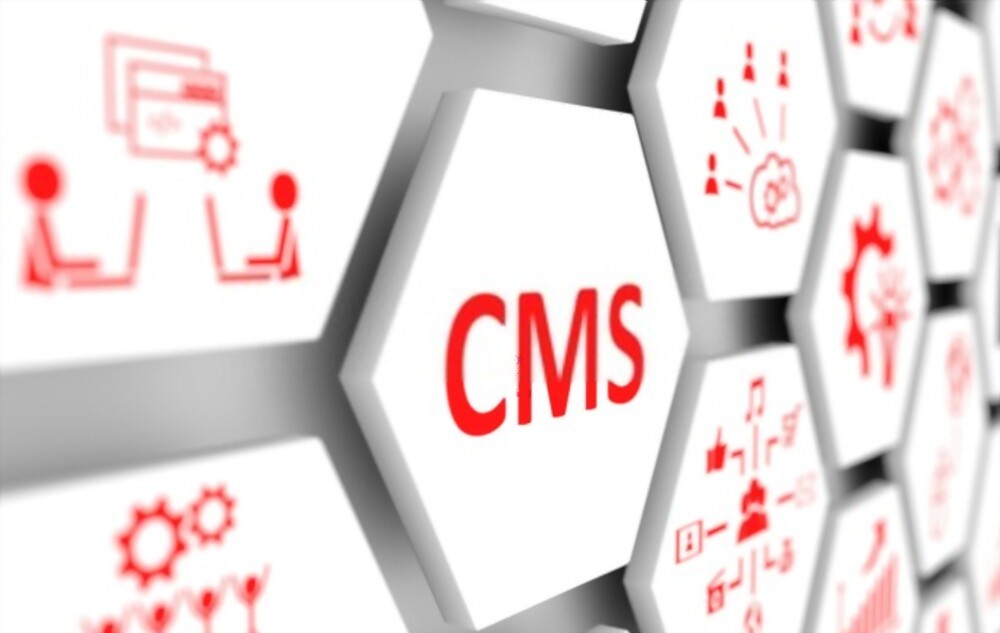If you do not want your eCommerce website to be exclusively crafted, you can create your website in less time using pre-built web development components. For this, you just need a hosting provider and the best open source content management system (CMS) to save you from creating all the complicated lines of code. The topic of what CMS Web Development framework to use has been the subject of a variety of online debates.
Many of the best web design companies provide content management services that make it easy to set up and handle the CMS. Finding the right staff and support to set it up would allow you to achieve progress.
What is CMS?
CMS, short for content management, is a software application that helps users to create and maintain a website without needing to code it. Content management systems provide a range of templates and styles to select from on your website. The template essentially reflects the general configuration and location of the various navigation menus.
Here’s a look at the six best CMS’s for website development for your business
- WORDPRESS
WordPress was first published in 2003. Its core technology is a PHP database with a SQL history. JavaScript has been more important over the past few years for many websites. WordPress has the best performance of all content management frameworks since its launch.
Key features:
-It offers a range of add-on solutions to improve the efficiency of your eCommerce shop.
-Simple text editor to break and style the content into parts.
-Stable framework for importing and saving photographs.
-Freedom to use plugins to expand the capabilities of your website. Some of the plugins are free, and others are paid for free.
-Decent interface for handling your content.
-Quite versatile when it comes to the sort of website that you choose to create.
-Offers tools for printing, such as arranging publications.
2. DRUPAL
Drupal is an open-source CMS for developers, advertisers, and agencies. This CMS is a popular website-building solution that deals with many sectors.
Key features:
– Offers control over your site.
– Has numerous extensions for customization and design.
– As an open-source community, it provides comprehensive shared documentation, well- developed message forums, chat and mailing lists, along with a feel of accessible online customs.
– Versatile to build and handle a wide range of content forms that are not limited to videos, surveys, blogs, podcasts, and statistics.
3. SHOPIFY
Shopify is a SaaS (Software as a Service) network. You can pay a monthly charge to use this unit. This is a perfect choice for an eCommerce shop. The themes of Shopify make the website look both beautiful and professional. Shopify also makes a greater range of plugins available to Shopify to ease the different activities. Its extended features let you create a stronger user experience by creating a stronger e-commerce platform.
Key features:
-Shopify allows us to keep track of your product inventory.
-Built-in payment processing system.
-Customizable templates.
-Stop-based messaging chat-bots have significantly improved customer interface.
-Shopify aims to optimize the layout and product pages on the website to be visible in more search results.
4. MAGENTO
Magento is one of the best online e-commerce websites developed by CMS. They represent all forms of firms, from small startups to enterprise-level businesses. You may download an open-source free version that includes the tools required to build an e-commerce usable site.
Key features:
– Magento provides easy-to-use SEO management, templates, and easy posting.
-Magento is commercial-oriented; it is more focused on offering top-notch services for mobile shopping, multi-store management, marketing, etc.
– It offers plenty of amazing CSS features ready to be used for web design.
– Magento is noted for offering advanced SEO technologies and meeting the requirements of mobile web design.
– Magento’s robust software helps you to reduce load times, even when there is a huge flow of users.
5. WOOCOMMERCE
WooCommerce is a WordPress open-source e-commerce plugin. It is planned for small to large online stores using WordPress. It functions close to WordPress but includes eCommerce features to make your site attractive.
Key features:
– Woocommerce makes it easier for you to build a website that you like. You have full control of the way you construct your website.
– WooCommerce provides the option you need to sell whatever you want.
– It runs as an open-source CMS platform that allows you to change and customize it as desired.
– It includes built-in blogging that lets you publish content and create your shop all in one spot.
– Users can pay by credit card, direct bank transfer, check or cash on arrival.
6. JOOMLA
Joomla is an open-source framework from which websites and apps can be developed. Joomla’s primary emphasis has been on accessibility and functionality since its first release in 2005. It is a fully free open source solution accessible to everyone and anyone who wants to create dynamic and heavy-duty sites for a multitude of uses.
Key features:
– Joomla is a robust solution between the convenience of WordPress and the strength of Drupal.
– If you’re keen on having a personal, small blog or a massive eCommerce shop with dozens of pages then Joomla is the right platform.
– It is very effective, scalable, and an all-purpose solution.
– This app is a perfect choice for online stores.
FINAL WORDS
If you can see, there are a range of great options for the right CMS apps. Without some coding experience, CMS systems have provided many users with options to build and manage the finest websites. You can begin using a free plan to run your website, then move to a paid plan once visitors increase on your website.

